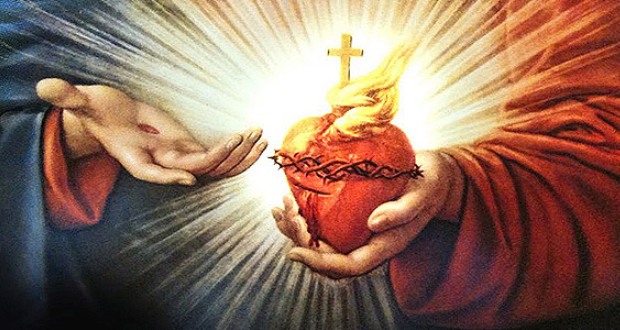Give To God What Belongs To God

This weekend’s gospel is another interesting one; one in which Jesus challenges his interrogators to identify whether a coin belongs to Caesar or if it belong to God. He then teaches them – and us by extension – to give to Caesar what belongs to Caesar, and to give to God what belongs to God. It is interesting to note however that Jesus did not identify what belongs to Caesar nor did he identify what belongs to God.
You see, the distinction between what is sacred and what is secular may have been a little more complicated than it actually seems in Jesus’ mind. Certainly in his teachings, there is a clear distinction between what is evil and what is good; between what is right and what is wrong.
The challenge presented here is that it is not always that easy to differentiate the secular as evil and the sacred as good. A classic example of this would be the number of Christians that are now being massacred daily in the middle east because of their belief in Jesus Christ and because they do not conform to the ideals of this group called Isis. The Pharisees set themselves apart in many ways as being sacred, but yet in so many ways they have acted with great malice. Today we see Jesus accusing them of exactly this when he calls them hypocrites.
In today’s world there is a great deal of confusion and debate over the separation of church and state and exactly what that means, and where the lines are to be drawn. Matthew’s gospel of this weekend seems to be teaching us that whatever lines we draw between sacred and secular may not necessarily reflect the same boundary that exist between what is good and what is evil. Our lives extend beyond the boundaries of the church, beyond the boundaries of the one hour or so that we spend at Holy Mass on a weekend, well into every facet of our lives. For example a coin with Caesar’s image may be considered secular but how we spend it and what we do with it can render it sacred.
The Pharisees and the Herodians knew that things were not quite black and white but yet they acted as if it were so that they can classify people as being either for Jesus or against him. This is why they were constantly trying to set traps for him. The world in which we live tries to do the same thing with us all the time. It tells us that if you like “this” then you certainly must be against “that”. If you are opposed to a particular government for example then you must be in favour of the opposition. But the reality of Christianity is that we do not inhabit a world like that. For example, we know that in our own hearts there is that constant struggle between what is good and what is evil. We know that like St. Paul, we struggle daily to do what we know is right even though, deep in our hearts, we truly desire to do what is right. As in the second reading from St. Paul, we know we are filled with grace and peace yet on the other hand there is that constant inner struggle with exactly that, grace and peace. Our hearts are both sinful and redeemed. That is why St. Paul speaks so passionately about running the race to the end and fighting a good fight because he knows it is a constant struggle, and while there was a tremendous amount of grace and mercy in him, he knew that he had to struggle daily to be pleasing to God.
Jesus came not to divide our hearts into two camps – one good and one bad, Rather, He came to unite our hearts that they might become like his own heart and be one with him. Everyday we are faced with the decision to either reconcile or to divide. Very often the outcome of that decision is driven by circumstances around us and it is often not the right decision. It is often not the decision to reconcile but rather the decision to divide. Sometimes we are so infuriated by things and circumstances around us that we act in ungodly ways, and we proclaim in anger things that are not of God. For instance “it’s about time they start hanging all those murderers,” forgetting that even the person who commits the most heinous crimes you can ever think of; they too are children of God. They too just like we, are sons and daughters of God who have lost their way in life, requiring salvation that Jesus won for us all.
Today’s gospel really challenges us to look deeper into ourselves and to decide really whose side are we on. Am I going to allow the world to dictate who I am, what I do and how I should act and think? As a Trini, am I going to adapt my whole life to the moral teachings of God as proclaimed by the Holy Roman Catholic Church, or am I going to adapt my life to the morals – or lack of morals – of our society. Am I going to allow God’s love and his mercy and the Sacred Heart of Jesus Christ His Son to rule and a triumph in me and over me? Am I going to allow myself to be washed in God’s grace? Am I going to allow his grace and his mercy to flow constantly in me and through me? Am I going to make myself available to God and every gift every talent every treasure that he has given to me to be used over and over and over for his glory? Which would it be? Give to God what belongs to God. Give Him your hearts – totally and completely.
And so loving and merciful Father, we thank you for your Holy Word that has spoken so powerfully in this weekend’s Gospel. Lord we are weak, and even though the desire to do what is right and pleasing to you resides in our hearts, too often we fail and fall short of your glory. Lord we ask you please to reign in us, to reign in our hearts and to reign in the hearts of the people of Trinidad and Tobago, the wider Caribbean and the whole world, that more and more of us would turn away from sin and commit our live totally and completely to you, to give to you God, what belongs to you, through Jesus Christ your Son our Lord. AMEN!






